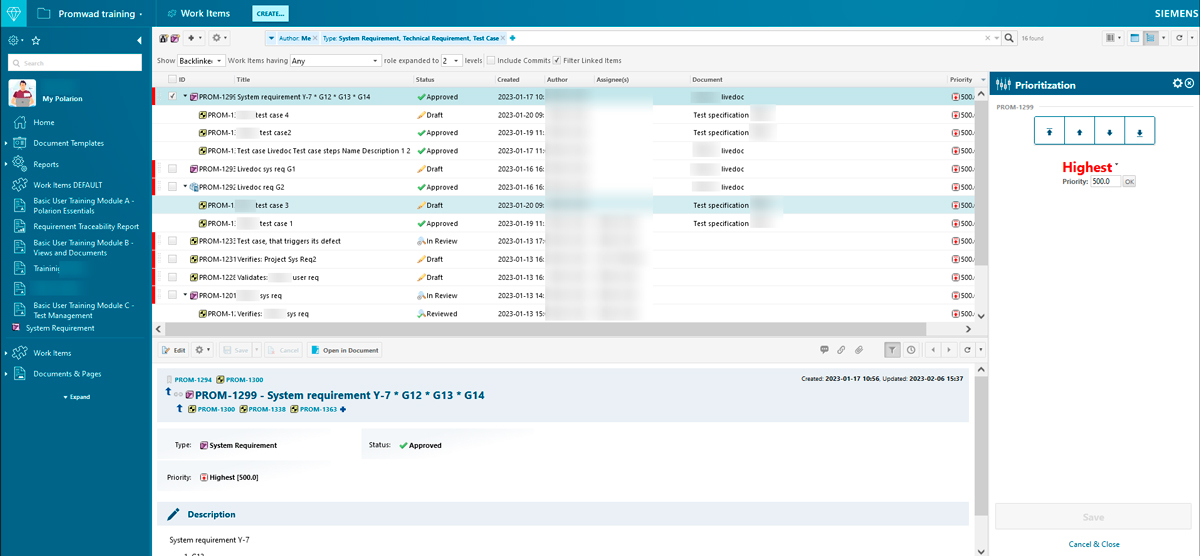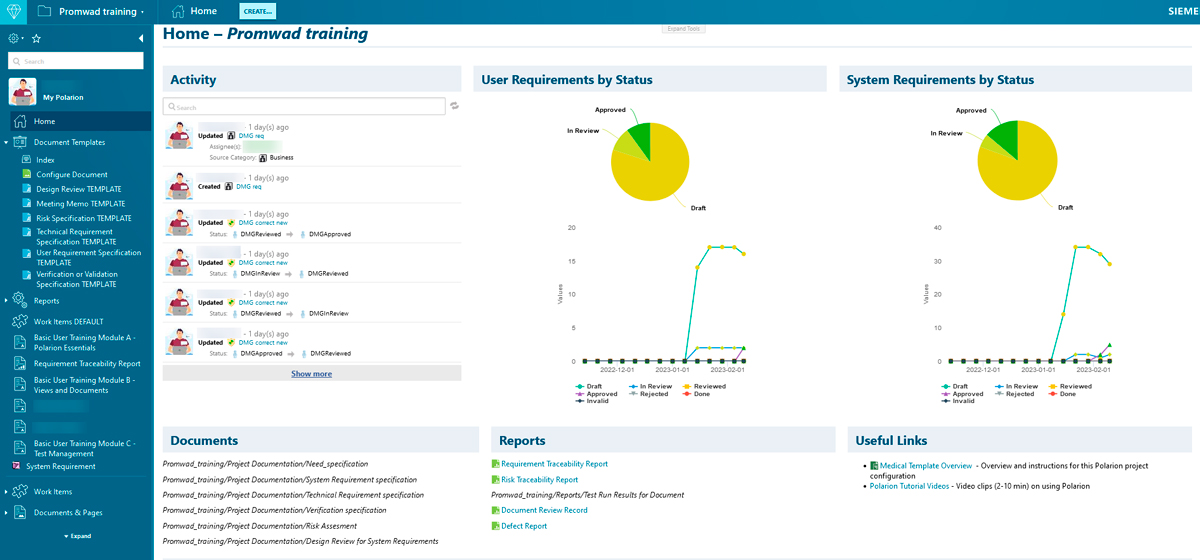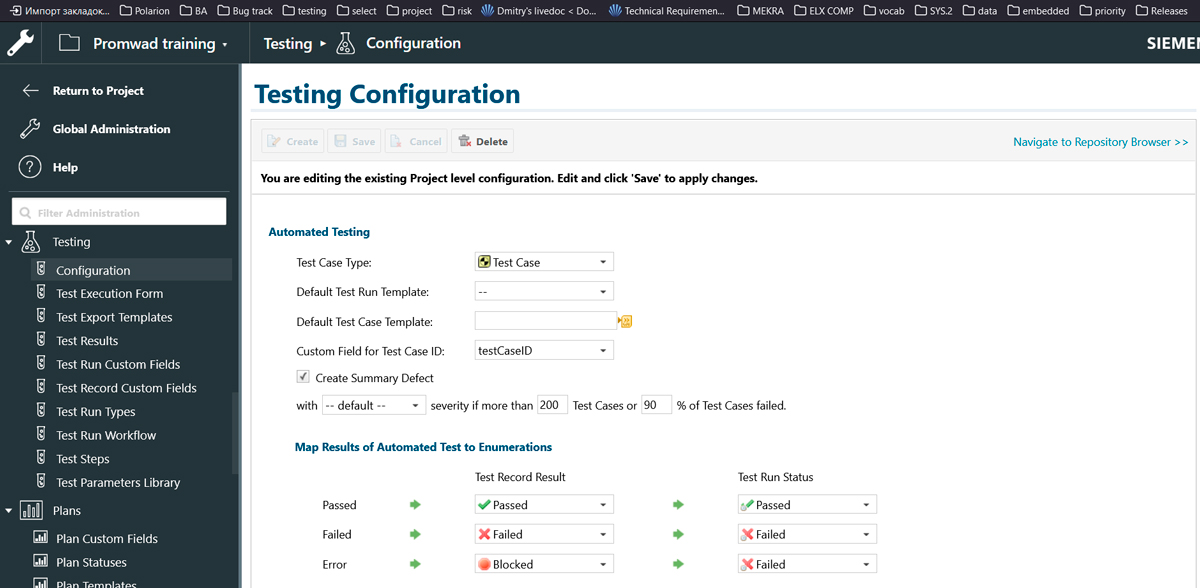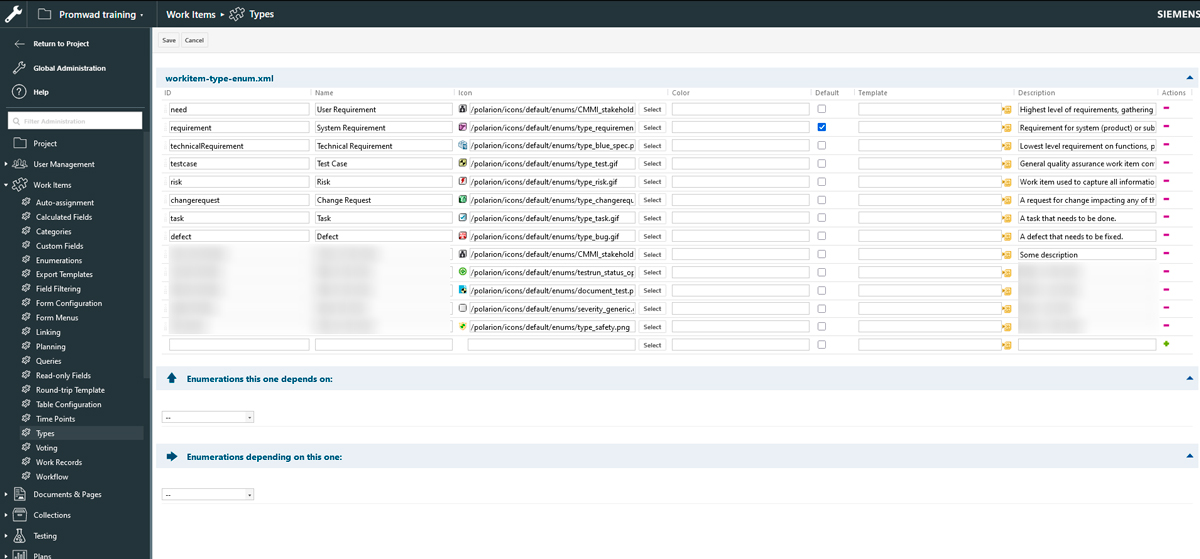Promwad Advances Its Expertise in Polarion ALM with Taipuva
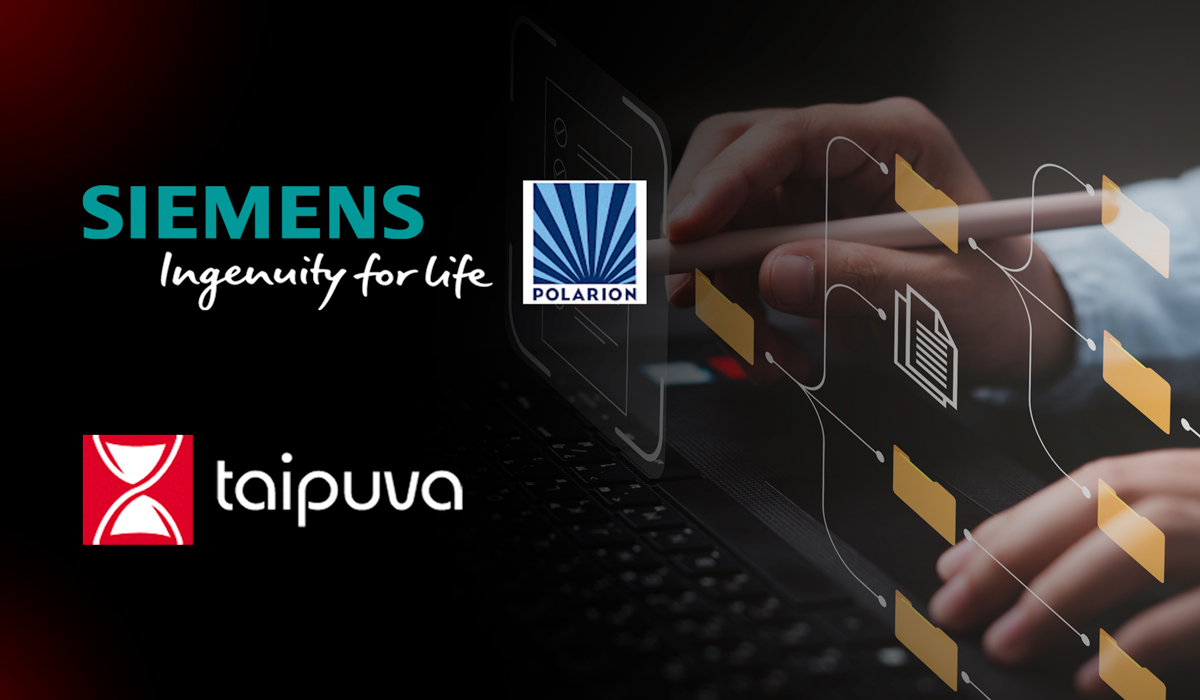
Our software and hardware engineers from the Automotive Unit completed an advanced course on Polarion, a lifecycle management system for product development. The training was provided by Taipuva, a Finnish consultancy company and regional partner of Siemens Polarion.
Our team's work on client projects is now even more efficient due to the transparency of processes, ease of communication and the ability to track all changes in real-time. This approach minimises errors and inefficient processes, which saves resources.
How Polarion makes software development easier
Polarion ALM (Application Lifecycle Management) is a platform for software development lifecycle control and project documentation. It allows you to control each stage and optimise the team's work in the project: reduce the time-to-market, simplify communication and organise the continuous development cycle.
The advantage of Polarion is flexibility. The platform can be configured according to your project's needs and uses only the tools you need. You can do the following:
- organise joint work with engineers;
- track any changes at each stage of your project and generate reports;
- create project requirements and test your product;
- reuse requirements that can be common for different projects;
- integrate the platform with other tools such as Azure DevOps, Atlassian JIRA, HP Quality Center.
How we raised our level with the Taipuva course
Taipuva organised our training. This Finnish company provides consulting and training courses for R&D teams in automotive, medical devices, heavy machinery, etc.
Our Automotive team had previous experience with Polarion ALM and used this platform for developing automotive software according to ASPICE. However, with each new project, it was clear that we needed to increase our expertise and get more engineers working on the Polarion platform.
Our training sessions were held online and took a total of 12 hours. This time, 10 people were trained, and 5 of them reached the advanced level. They studied the A—C blocks: basics of working with the platform, making requirements, and test cases. The knowledge gained at the advanced level (blocks F—H) will help to customise Polarion APL for specific projects.
Polarion workspace: different types of work items, menus with reports, work items control panel, and test configuration.
Our team was trained in the 6 blocks of the program:
- Block A. Essentials — an introduction to the platform terminology, interface and work items.
- Block B. Views and Documents — work with the fields and documents of the platform.
- Block C. Test Management — management of testing tasks, their settings, and test execution.
- Block F. Polarion Admin Basics — administration, permissions and licences management, project creation and role settings, live reports.
- Block G. Process Configuration Basics — creating processes in Polarion, identifying work items and interactions between them.
- Block H. Process Configuration Advanced — setting up processes, creating document and process specific configuration, plan configuration for project management.
As a result, our team has gained additional tools for working with Polarion: creating templates and custom projects and administering the platform. But most importantly, based on the training we have received, we are writing internal instructions for working with Polarion and training the team. It will help to implement customer projects to the highest quality standards!

